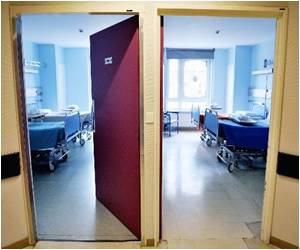A new study conducted by scientists finds magnet hospitals show higher job satisfaction and lower odds of patient mortality than non-Magnet hospitals.

"Many of the recent efforts to improve quality and enhance transparency in healthcare have been dominated by physician services and medical outcomes," explains Amy Witkoski Stimpfel, PhD, RN, assistant professor at NYUCN. "Our study shows that the overall quality of patient care can be optimized when nurses work in a positive environment, with adequate resources and support at the organizational level."
The study, "Understanding the Role of the Professional Practice Environment on Quality of Care in Magnet and Non-Magnet Hospitals," focused on cross-sectional data, including the American Hospital Association's annual survey, as well as an analysis of 56 Magnet and 495 non-Magnet hospitals. Carefully balancing variables in order to remove the maximum bias, Dr. Witkoski Stimpfel's team found a clear positive correlation between positive nurses work environments and nurse-reported quality of care. Even after taking into consideration hospital characteristic differences between Magnet and Non-Magnet hospitals, Magnet hospitals were still positively correlated with higher reports of excellent quality of care.
"Having visible and accessible chief nurses, encouraging and including nurses in decision making in their unit and throughout the organization, supporting nursing practice and engaging in interdisciplinary patient care, are but a few examples of readily modifiable features of a hospital," Dr. Witkoski Stimpfel. "Because all organizations, Magnet and otherwise, have the potential to enrich their practice environment, every organization stands to benefit from improving the organization of nursing care."
"Our findings suggest that Magnet hospitals produce better quality of care through their superior practice environments," states Dr. Witkoski Stimpfel. "Hospitals that invest in improving the nursing work environment have the potential to benefit from increased quality of care for their patients and families."
Dr. Witkoski Stimpfel is continuing to research the outcomes associated with Magnet hospitals. Her current project is focusing on assessing the relationship between Magnet recognition and patient satisfaction in a national sample of hospitals.
Advertisement









